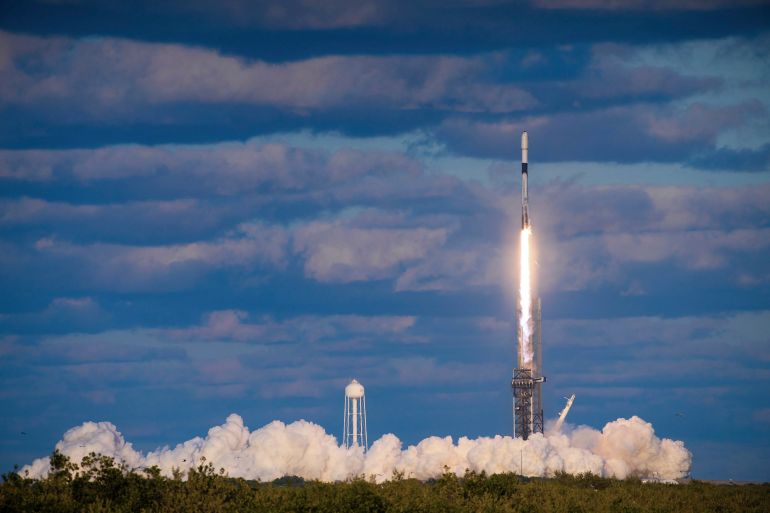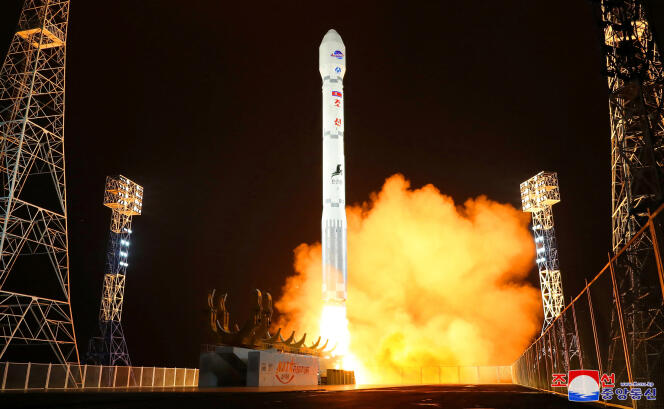South Korea launches 2nd military reconnaissance satellite amid tensions with North Korea
South Korea’s successful launch of its second satellite fortifies its surveillance capabilities in response to North Korea’s escalating satellite plans
South Korea bolstered its surveillance arsenal by launching its second military reconnaissance satellite, swiftly responding to North Korea’s recent reaffirmation to deploy multiple spy satellites this year.
The satellite, propelled by a SpaceX Falcon 9 rocket, ascended into orbit from the Kennedy Space Center in Florida, confirmed South Korea’s National Ministry of Defense.

Highlighting the significance of the launch, Seoul’s military emphasized that the event solidified its “independent intelligence, surveillance and reconnaissance capabilities.”
“We will proceed with future satellite launches without a hitch,” Seoul’s military declared confidently.
The Falcon 9 rocket soared into the sky at 11:17 p.m. GMT, with the satellite separating from its launch vehicle 45 minutes later, seamlessly slipping into its designated orbit, as outlined in the ministry’s statement.
Approximately two hours and 40 minutes post-launch, successful communications were established with a ground station, marking another milestone in South Korea’s satellite endeavors.
With plans to deploy a total of five military spy satellites by 2025, South Korea is fervently competing with North Korea to enhance its surveillance prowess amidst escalating tensions on the Korean Peninsula.
Global alarm over North Korea’s Satellite Program

North Korea, having launched its inaugural spy satellite, Malligyong-1, in November 2023, announced intentions to expand its satellite fleet, with Leader Kim Jong Un aiming to orbit three more military spy satellites in 2024.
South Korean Defence Minister Shin Wonsik hinted at an imminent satellite launch, possibly coinciding with the April 15 celebration of state founder Kim Il Sung’s birthday, a day traditionally marked by elaborate ceremonies and military parades.
However, North Korea’s satellite aspirations draw international scrutiny, viewed as a breach of United Nations sanctions due to the employment of banned ballistic missile technology in satellite launches.
Source: Newsroom



